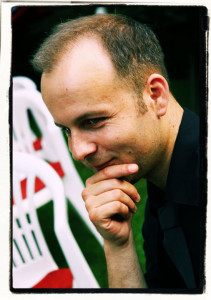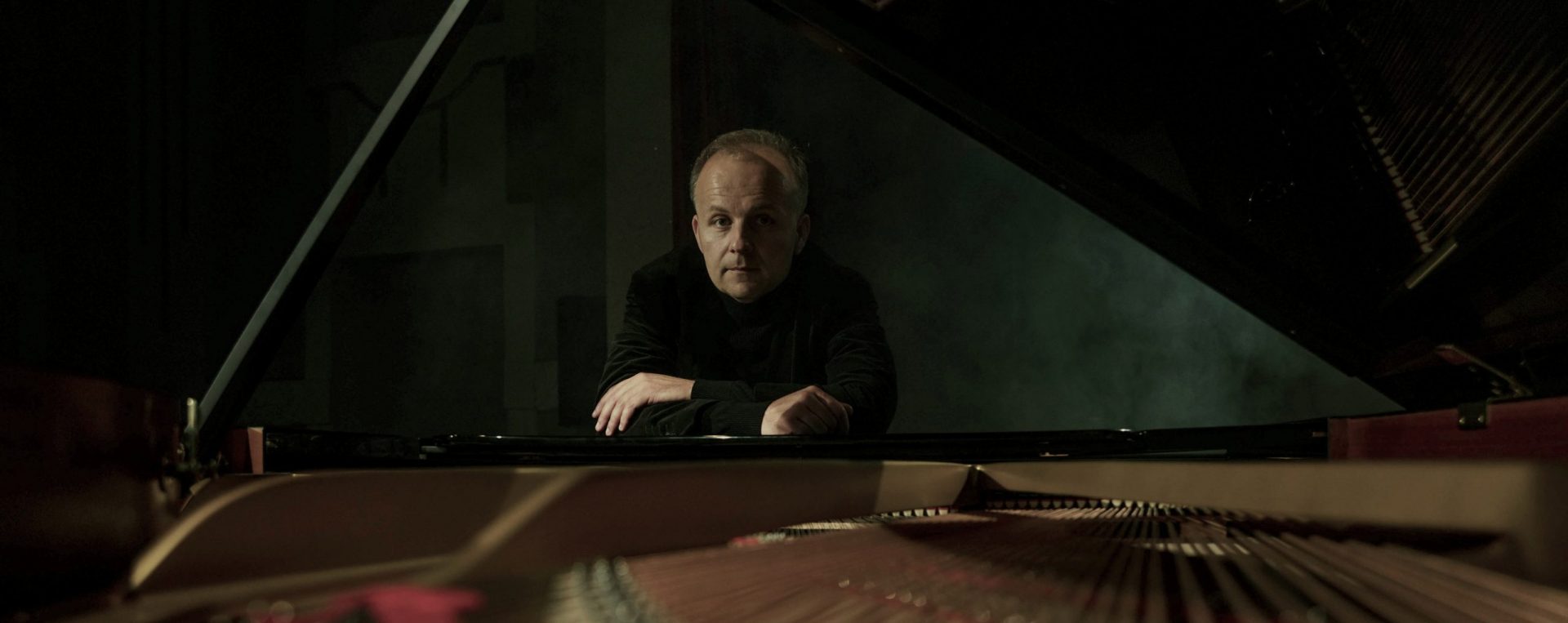 Dalibor Grubačević is an award-winning Croatian composer of film and concert music. He has received several major professional awards in his country and abroad. He is also a multifaceted artist of eclectic musical interests, whose work is best described by the contradictory label of an “unclassical classicist.” In his composition, he uses classical orchestration combined with electronic sounds and instrumentation. Dalibor Grubačević is a full member of the Croatian Composers’ Society (HDS) and Croatian Freelance Artists’ Association (HZSU).
Dalibor Grubačević is an award-winning Croatian composer of film and concert music. He has received several major professional awards in his country and abroad. He is also a multifaceted artist of eclectic musical interests, whose work is best described by the contradictory label of an “unclassical classicist.” In his composition, he uses classical orchestration combined with electronic sounds and instrumentation. Dalibor Grubačević is a full member of the Croatian Composers’ Society (HDS) and Croatian Freelance Artists’ Association (HZSU).
Beside film scores and feature, documentary, commercial, and corporate soundtracks, Grubačević is interested in pop, rock, and ethno music as much as in classical writing. “Two Rivers”, his cantata in two parts (I: Drava and II: Mura), based on melodies and motifs from the regions of Podravina and Međimurje, has been performed around the world, from Canada, the United States, Japan, England, Italy, Israel, and Georgia, to the region (Macedonia, Montenegro), by the Simply Brass Quintet, whose album Camminate Grubačević has also produced. In 2012, collaborating with the renowned American composer Eric Ewazen, and also with Australian composer Alan Holley in 2014.
Soundtrack composition, which has become his current stock in trade, begun with Grubačević’s well-received score for the 2006 children’s feature The Ghost in the Swamp, directed by Branko Ištvančić. Their collaboration continued with the 2014 drama The Bridge at the Edge of the World, based on an award-winning novel by Josip Mlakić. In 2016 he worked with Anđelo Jurkas on his feature film Because of you and Fuck off I love you next year. In 2022, he scored feature film The Conversation directed by Dominik Sedlar, starring Caspar Phillipson and Dylan Turner.
Dalibor Grubačević was born and educated in Koprivnica. His musical beginnings came with the pop-rock band The Bugs, inspired by the music of The Beatles, whose music he has closely studied; the band recorded a few studio albums in the early 1990’s. Later, Grubačević studied classical composition under the private tutelage of Professor Natalija Imbrišak.
In addition to his film/TV & concert music, Grubačević has had a long and fruitful career as an arranger for numerous Croatian and international artists. Since 2004, he has been working with the Macedonian composer, singer and producer Aleksandar Mitevski, and he also collaborated with the late Macedonian violinist Zoran Džorlev and the singer Toše Proeski. In 2014 alongside with Aleksandar Mitevski & Boban Apostolov arranged macedonian version of Daniel Kajmakoski’s song “Autumn Leaves” which won at Skopje Fest. The song was the Macedonian representative for the Eurovision Song Contest that year. In 2015 with Alan Bjelinski he orchestrated song “Ja bi da te slijedim” written by Lea Dekleva (dedicated to the late Arsen Dedić). In 2018 he wrote orchestrations for Aljoša Šerić’s solo album “Što ćemo raditi do kraja života” and in 2020 orchestrations for Croatian pop-rock band Pavel for the album “Ennui”. Grubačević has also produced the 2008 album Fulmination by the renowned Croatian ethno-blues artist Miroslav Evačić, receiving a nomination for the country’s pre-eminent musical award, the Porin, in the Best Ethno Album category.
Croatian and international artists. Since 2004, he has been working with the Macedonian composer, singer and producer Aleksandar Mitevski, and he also collaborated with the late Macedonian violinist Zoran Džorlev and the singer Toše Proeski. In 2014 alongside with Aleksandar Mitevski & Boban Apostolov arranged macedonian version of Daniel Kajmakoski’s song “Autumn Leaves” which won at Skopje Fest. The song was the Macedonian representative for the Eurovision Song Contest that year. In 2015 with Alan Bjelinski he orchestrated song “Ja bi da te slijedim” written by Lea Dekleva (dedicated to the late Arsen Dedić). In 2018 he wrote orchestrations for Aljoša Šerić’s solo album “Što ćemo raditi do kraja života” and in 2020 orchestrations for Croatian pop-rock band Pavel for the album “Ennui”. Grubačević has also produced the 2008 album Fulmination by the renowned Croatian ethno-blues artist Miroslav Evačić, receiving a nomination for the country’s pre-eminent musical award, the Porin, in the Best Ethno Album category.
Also worth noting are his collaboration with the world known string chamber orchestra Zagreb Soloists then Zagreb Philharmonic Orchestra, Croatian Radiotelevision Symphony Orchestra and Budapest Scoring Orchestra.
